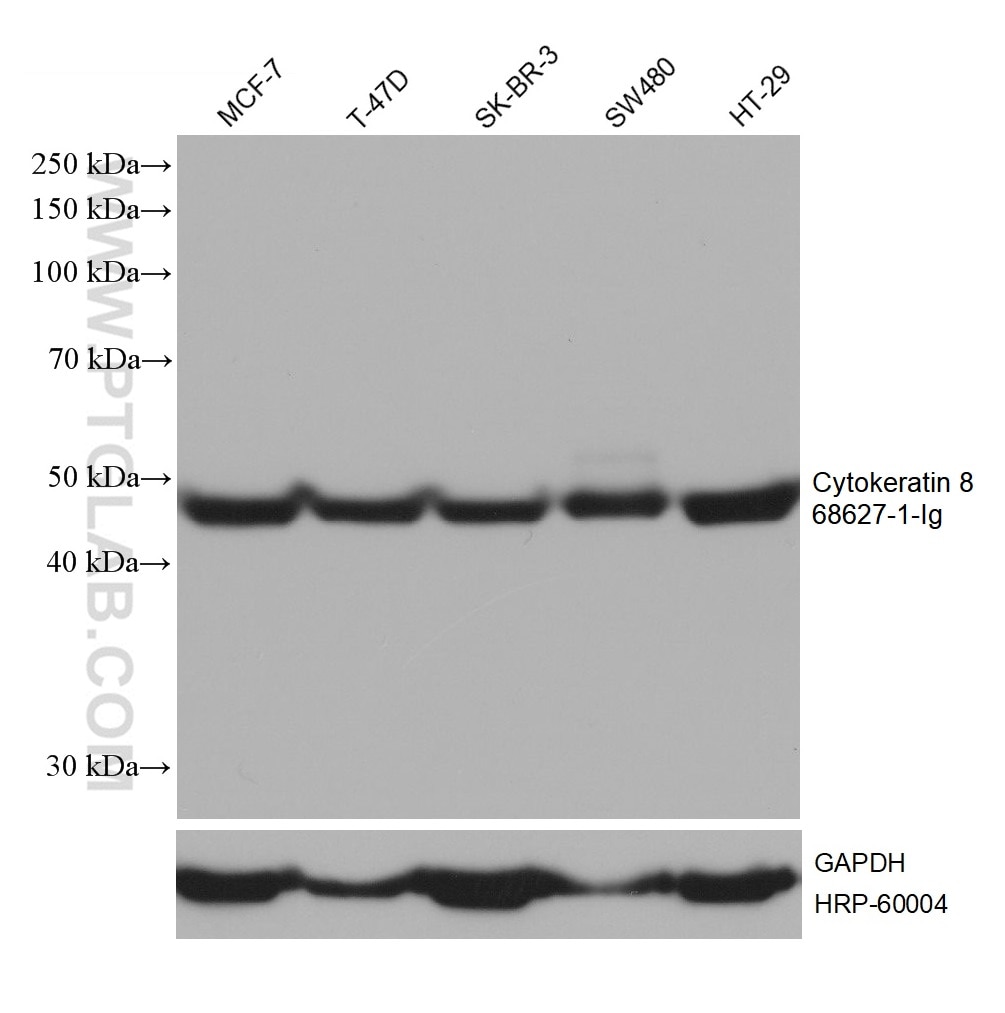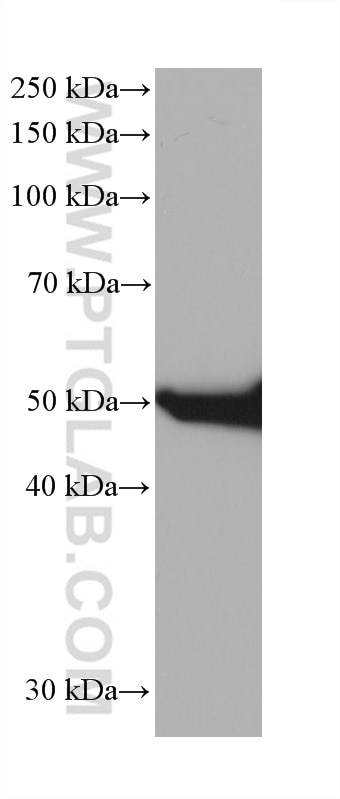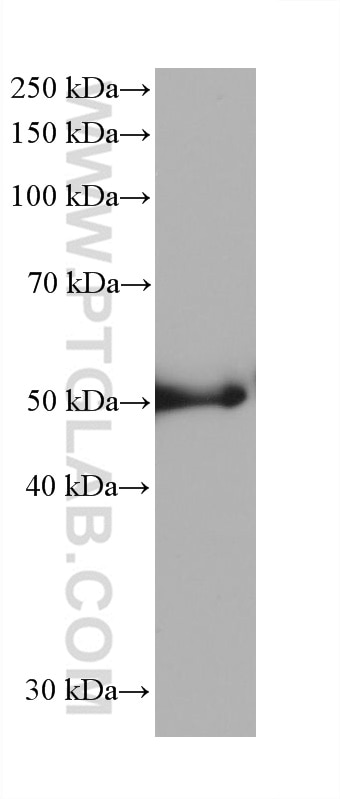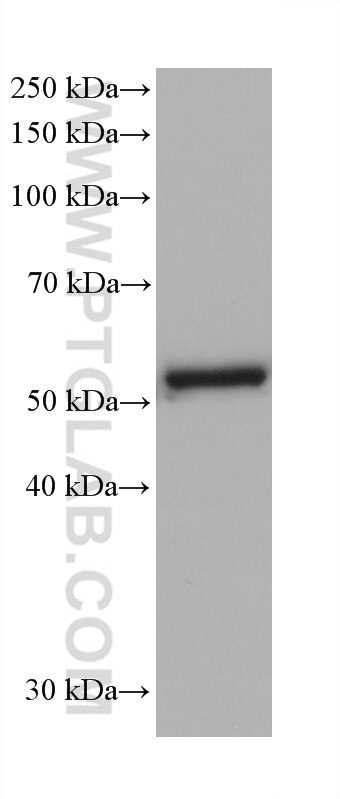Cytokeratin 8 Monoclonal antibody
Cytokeratin 8 Monoclonal Antibody for WB, ELISA
Host / Isotype
Mouse / IgG1
Reactivity
Human, mouse, rat
Applications
WB, ELISA
Conjugate
Unconjugated
CloneNo.
1F2H5
Cat no : 68627-1-Ig
Synonyms
Validation Data Gallery
Tested Applications
| Positive WB detected in | MCF-7 cells, A549 cells, rat colon tissue, mouse colon tissue, T-47D cells, SK-BR-3 cells, SW480 cells, HT-29 cells |
Recommended dilution
| Application | Dilution |
|---|---|
| Western Blot (WB) | WB : 1:5000-1:50000 |
| Sample-dependent, check data in validation data gallery | |
Product Information
68627-1-Ig targets Cytokeratin 8 in WB, ELISA applications and shows reactivity with Human, mouse, rat samples.
| Tested Reactivity | Human, mouse, rat |
| Host / Isotype | Mouse / IgG1 |
| Class | Monoclonal |
| Type | Antibody |
| Immunogen | Cytokeratin 8 fusion protein Ag0488 相同性解析による交差性が予測される生物種 |
| Full Name | keratin 8 |
| Calculated molecular weight | 54 kDa |
| Observed molecular weight | 50-52 kDa |
| GenBank accession number | BC000654 |
| Gene symbol | KRT8 |
| Gene ID (NCBI) | 3856 |
| Conjugate | Unconjugated |
| Form | Liquid |
| Purification Method | Protein G purification |
| Storage Buffer | PBS with 0.02% sodium azide and 50% glycerol pH 7.3. |
| Storage Conditions | Store at -20°C. Stable for one year after shipment. Aliquoting is unnecessary for -20oC storage. |
Background Information
Keratins are a large family of proteins that form the intermediate filament cytoskeleton of epithelial cells, which are classified into two major sequence types. Type I keratins are a group of acidic intermediate filament proteins, including K9-K23, and the hair keratins Ha1-Ha8. Type II keratins are the basic or neutral courterparts to the acidic type I keratins, including K1-K8, and the hair keratins, Hb1-Hb6. KRT8 is often paired with keratin 18 in vivo.
Protocols
| Product Specific Protocols | |
|---|---|
| WB protocol for Cytokeratin 8 antibody 68627-1-Ig | Download protocol |
| Standard Protocols | |
|---|---|
| Click here to view our Standard Protocols |





